Throughout all the seasons of my lifethe good times and badI am blessed by the surrounding love of my family and friends. This very personal book overflows with your insights, your compassion, your support, your tears, and your laughter. I thank each and every one of you, for I have no greater gift than the love you give me. As William Blake once wrote, The bird, a nest; the spider, a web; man, friendship. You protect and contain me beautifully throughout all the sweet and bitter times of my life.
To Lisa Ross, my literary agent, manager, friend, lifelineyour unfaltering support and creative energy fuel me every step of the way.
To my friends at Henry Holt and Company: Amelia Sheldon, an editor whose intelligence, insights, and skills crafted this book into a far better one than I could have written alone. To Deborah Brodyeditor, promoter, and relentless seeker of a perfect title. John Sterling, Maggie Richards, and Elizabeth Shreve for their enthusiastic support of this book and the philosophy about life that it presents.
To my friends and colleagues in Dr. Michael Pearsons Creative Nonfiction workshop in the MFA program at Old Dominion Universityyour honest and supportive commentary helped shaped the book and reminded me about the most important three rules of writingrewrite, rewrite, rewrite. I thank you.
My thanks especially to the men and women whose personal life stories inform this book and bring spiritual ideas down to earth. Your courage, compassion, and aliveness attest to the remarkable human capacity to grow through suffering and to live always with joy and wonder even in the midst of tears. You give us powerful models to follow and remind us that each day comes bearing its own gifts.
KATHLEEN A. BREHONY, PH.D., is a Jungian-oriented psychotherapist, personal coach, and public speaker who has delivered hundreds of keynote addresses and presided over numerous workshops and training sessions. She is the author of Awakening at Midlife and Ordinary Grace. She divides her time between Virginia and California.
Living in the Guest House
It is by going down into the abyss that we recover the treasures of life.
Joseph Campbell

The metaphors about growing through suffering are so commanding that it can be easy to distance our real pain from them. The story of Job, the heros journey, the birth of the Self, the alchemical transformation of lead into gold can feel like bigger, more important, stories than our own little lives. Sure, we might think, those are powerful images, but what do they really have to do with me as I shiver with nausea from chemotherapy, feel the jagged emptiness after a loved one has died or left me, or struggle to recapture some sense of self-worth and pay the bills after the loss of a job or financial security? Any one of a thousand scenarios can threaten to crush our spirit, blind our senses, and bring suffering into our lives like an uninvited guest. But the truth is that each of our lives is a powerful story about life itself, suffering, and the potential for enlightenment and wisdom that can emerge in the light of such brutal teachers. It is precisely when we can see our lives as part of this larger mythopoetic context that we are most likely to expand our consciousness, see what we could not see before, establish the full awareness of how our lives are like all other lives, and head in the direction of living authentically and compassionately. It is in this larger, transcendent view that we discover that the blossom of resurrection and the promise of psychological healing and spiritual growth lies within the seed of pain.
The truth is that our lives are mythological and fed by the life-nourishing images that have been described throughout human history. Youve got the same body, with the same organs and energies, that Cro-Magnon man had thirty thousand years ago, Joseph Campbell said in his PBS series about the power of myth. Living a human life in New York City or living a human life in the caves, you go through the same stages of childhood, coming to sexual maturity, transformation of the dependency of childhood into the adult responsibility of manhood or womanhood, marriage, then failure of the body, the gradual loss of its powers, and death. You have the same body, the same bodily experiences, and so you respond to the same images.
Each of us must live through every moment of an unfolding and ancient human drama. What will we do when our souls are tested and our spirits threatened? We all hold the capacity to live as a hero, to come to our life like a warrior, regardless of the burdens and difficulties we must endure to get home again. Will we be up to the task?
As I was writing this book, I looked for a single story that would embrace and illustrate many of the points Ive made. Just as I was thinking about it, my friend Andrea called me. It seems that the day before she called she had had lunch with Ann, a close friend of hers and a woman I met once a few years earlier, while we were both working on a Public Radio fund-raiser. Andrea didnt know I was on a quest for a story, but for some reason she mentioned to Ann that I was writing a book about how suffering in life can set us on a path toward enlightenment and wisdom. Upon hearing the subject of my book, Ann immediately took Andreas arm and said, Oh, Kathy must talk with my good friend Jennet Bernert. Shes going through a very difficult time with such grace and courage that she glows. Andrea called me the next morning and told me about this conversation. I trust synchronicitythose meaningful coincidencesthat the universe delivers with great frequency if only we will pay attention and see them as the gifts that they are. I immediately placed a call to Jennet, who, it turns out, lives very near me in Virginia.
Jennet said that she was both reluctant and eager to talk to me. Her reluctance came from her belief that she was in no way special. She was, she insisted, just a woman who was up against a challenging timein her life and doing the best she could with it. On the other hand, she said, she would be more than happy to talk with me if there was anything in her story that could help even one other person. If that were the case, she reiterated, she would be eager to share her experience. I knew immediately by both her humility and her clearly expressed desire that her story might help someone else and that, when I met Jennet, I would be in the presence of a warrior, a woman on a heros journey. I was not disappointed.
Jennet and her husband, Larry, a retired psychiatrist, live in a beautiful old two-story house in a Norfolk neighborhood where giant oak trees line the sidewalks and a park borders the edge of the Lafayette River. The streets are quiet and merge into protected cul-de-sacs. You can tell at first glance that this is a great neighborhood for kids. Jennet and Larry have lived in this same house for thirty years and raised two daughters and a son here; all are now adults with families of their own.
Larry answers the door and invites me in. Hes trim, gray haired but with a youthful face, and dressed casually in khakis and an oxford cloth shirt. Hes most welcomingI could be coming over for afternoon teabut theres sadness in his eyes. I meet with Jennet in a glass-walled sunroom that overlooks their well-tended yard and garden. Outside theres a statue of St. Francis, which is near a bird feeder and surrounded by a bed of blooming flowers. Its odd to see outdoor flowers thriving at this time of the year, I think. But its been unusually warm here. Just yesterday I wore shorts when Dorothy and I walked our mile and a half. The sunlight streams into this room from all directions, making it a brilliant and warm place to talk. The room is so bright that I rearrange my chair to look directly at Jennet without squinting. Shes sixty-one but looks fifteen years younger than that. Shes dressed casually in a dark skirt and pretty blouse. Jennet is a trim, beautiful woman with short dark hair and clear blue eyes that sparkle with warmth and wisdom. There is a peacefulness about her, and I immediately think that Andreas friend is right. Jennet does glow with some kind of inner strength, knowledge, or grace. She sits on a couch with only one external clue of the struggle she has told me a little about on the phone and well discuss in greater detail today. It is a polished black cane that she used to walk into this room.

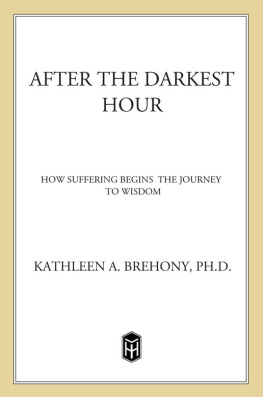

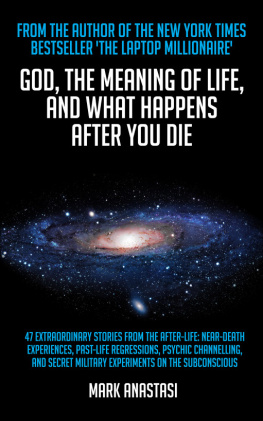
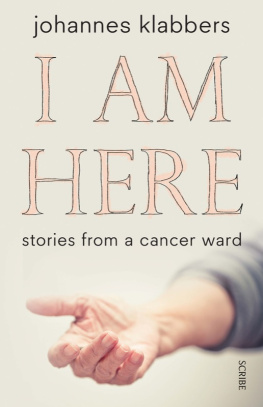
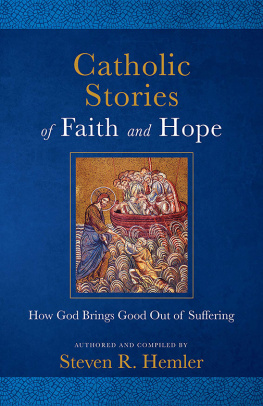
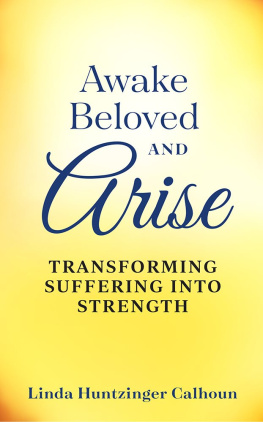
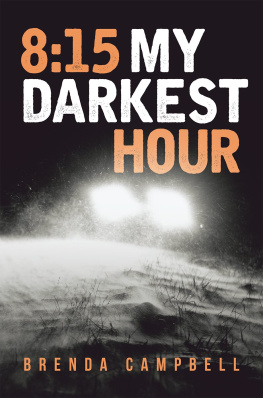
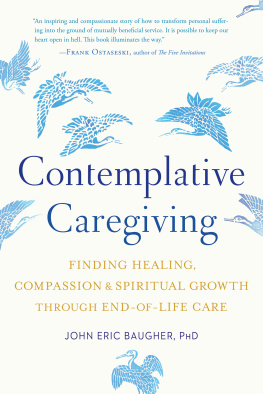
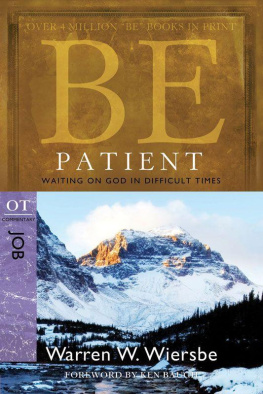
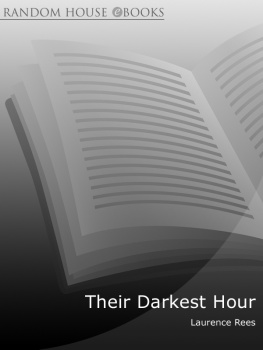

 The metaphors about growing through suffering are so commanding that it can be easy to distance our real pain from them. The story of Job, the heros journey, the birth of the Self, the alchemical transformation of lead into gold can feel like bigger, more important, stories than our own little lives. Sure, we might think, those are powerful images, but what do they really have to do with me as I shiver with nausea from chemotherapy, feel the jagged emptiness after a loved one has died or left me, or struggle to recapture some sense of self-worth and pay the bills after the loss of a job or financial security? Any one of a thousand scenarios can threaten to crush our spirit, blind our senses, and bring suffering into our lives like an uninvited guest. But the truth is that each of our lives is a powerful story about life itself, suffering, and the potential for enlightenment and wisdom that can emerge in the light of such brutal teachers. It is precisely when we can see our lives as part of this larger mythopoetic context that we are most likely to expand our consciousness, see what we could not see before, establish the full awareness of how our lives are like all other lives, and head in the direction of living authentically and compassionately. It is in this larger, transcendent view that we discover that the blossom of resurrection and the promise of psychological healing and spiritual growth lies within the seed of pain.
The metaphors about growing through suffering are so commanding that it can be easy to distance our real pain from them. The story of Job, the heros journey, the birth of the Self, the alchemical transformation of lead into gold can feel like bigger, more important, stories than our own little lives. Sure, we might think, those are powerful images, but what do they really have to do with me as I shiver with nausea from chemotherapy, feel the jagged emptiness after a loved one has died or left me, or struggle to recapture some sense of self-worth and pay the bills after the loss of a job or financial security? Any one of a thousand scenarios can threaten to crush our spirit, blind our senses, and bring suffering into our lives like an uninvited guest. But the truth is that each of our lives is a powerful story about life itself, suffering, and the potential for enlightenment and wisdom that can emerge in the light of such brutal teachers. It is precisely when we can see our lives as part of this larger mythopoetic context that we are most likely to expand our consciousness, see what we could not see before, establish the full awareness of how our lives are like all other lives, and head in the direction of living authentically and compassionately. It is in this larger, transcendent view that we discover that the blossom of resurrection and the promise of psychological healing and spiritual growth lies within the seed of pain.